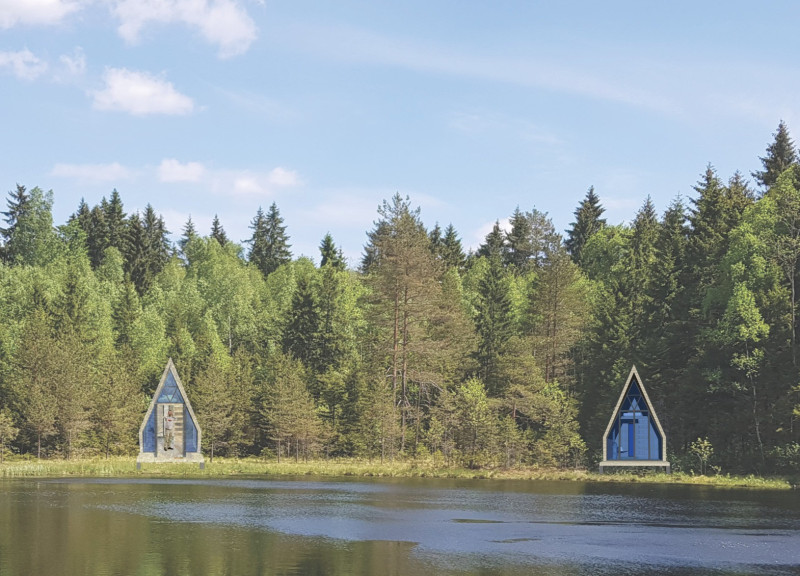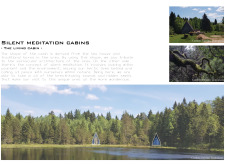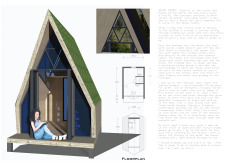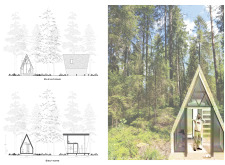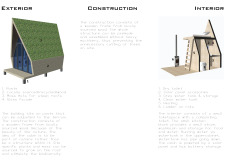5 key facts about this project
The Silent Meditation Cabins are located in Latvia and offer a space for individuals to connect with nature. Focused on the theme of silent meditation, the cabins serve as a retreat away from the busy pace of modern life. Their design is inspired by traditional local buildings, particularly tea houses and barns. This connection to local architecture helps the cabins blend into their surroundings while promoting a sense of peace.
Architecture and Form
The cabins feature steep moss roofs that echo the surrounding trees, creating a visual connection with the forest. This architectural choice enhances insulation and manages rainwater effectively. Inside, the layout balances private spaces for reflection with communal areas for interaction. This arrangement allows visitors to choose between solitude and shared experiences, depending on their needs.
Materials and Sustainability
Locally sourced wood forms the structural framework of the cabins, highlighting a commitment to sustainability and regional building practices. The exterior is clad in materials that age naturally over time, helping the structures integrate better into the environment. This approach to material selection not only supports ecological goals but also emphasizes the connection between the cabins and the landscape.
Natural Integration
Natural elements play an important role in the design, with rooftops featuring flowers and herbs that enhance local biodiversity. This integration of plant life enriches the sensory experience for visitors, inviting them to engage with their surroundings in a meaningful way. The cabins incorporate essential amenities, including composting toilets, which align with eco-friendly practices.
Visitors can enjoy the clear connection between indoor and outdoor spaces, where features like a fireplace provide warmth and comfort. Glass doors open to nature, allowing sunlight and fresh air to enter, creating an inviting environment for relaxation and meditation.


